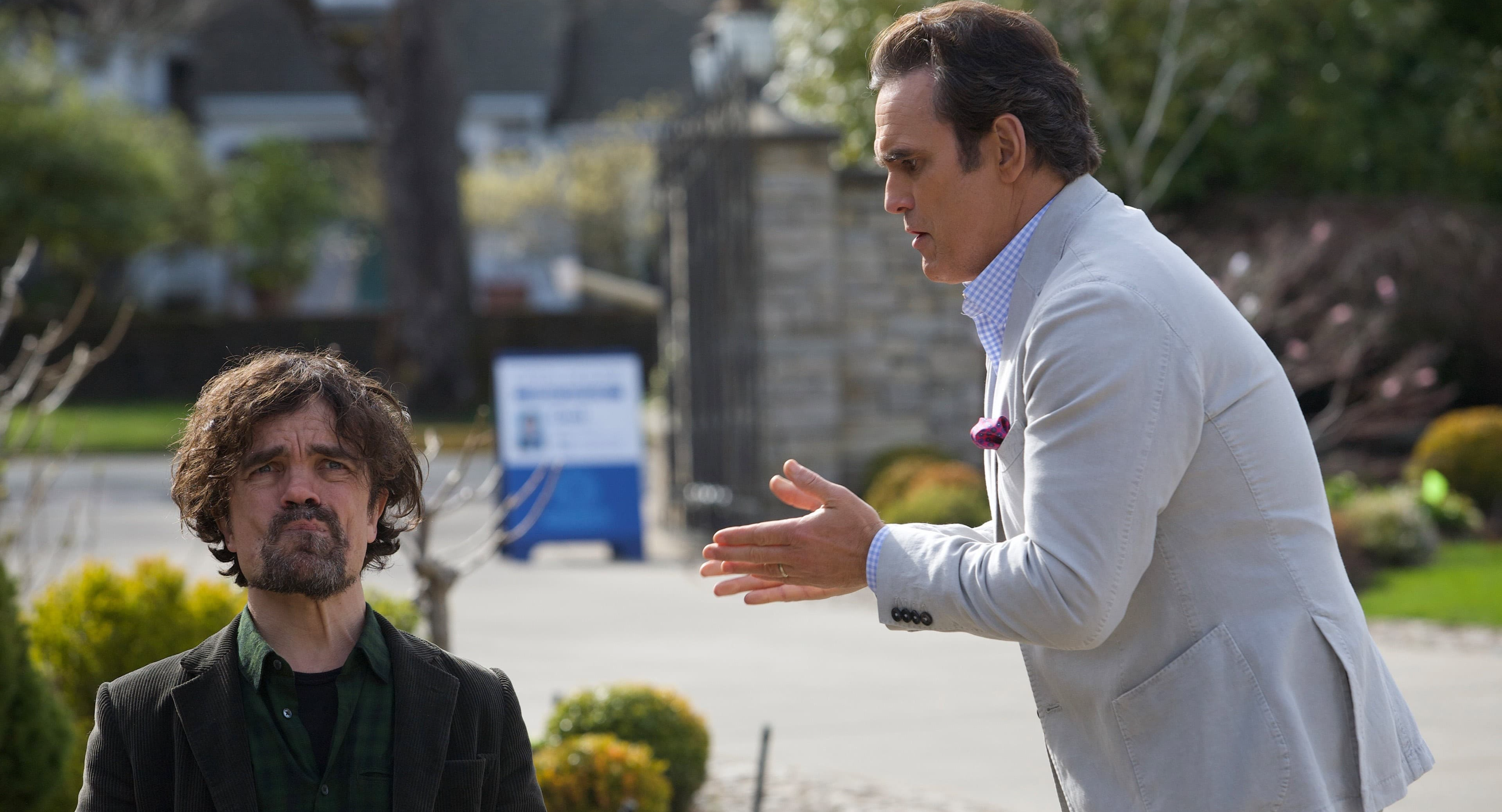American Dreamer – Film Review
Published March 10, 2024

American Dreamer, directed by Paul Dektor in his feature debut and penned by Theodore Melfi, positions itself within the realms of black comedy—a genre noted for its capacity to draw humor from situations others might find despairing or morose. Leveraging a storyline that initially captivates due to its quirky premise and an ensemble cast headlined by Peter Dinklage and Shirley MacLaine, the film ambitiously seeks to offer both laughter and poignant observations about the American pursuit of happiness and the idea of home ownership. However, it ultimately delivers a mixed bag that leaves the audience grappling with unmet potential and a sense of imbalance between its comedic and dramatic elements.
At the heart of American Dreamer is Dr. Phil Loder, portrayed with characteristic charm and depth by Dinklage, a low-level adjunct professor of economics with grand aspirations but a less-than-grand life situation. His desires manifest into an almost palpable yearning when the opportunity of a lifetime presents itself: the chance to purchase a sprawling estate for an absurdly small sum from Astrid, a lonely widow played by the venerable Shirley MacLaine. The premise is ripe with potential, leveraging a classic narrative hook that promises intrigue, humor, and possibly a dark twist.
MacLaine’s portrayal of Astrid blends wry humor with layers of sadness, offering a counterpoint to Loder’s frenetic optimism. The scenes shared by Dinklage and MacLaine are among the film’s strongest, hinting at a depth and nuance that the remainder of the movie struggles to consistently maintain. Supporting characters played by Kim Quinn, Danny Pudi, Danny Glover, and Matt Dillon add to the film’s rich tapestry, although their performances often feel as if they are confined by the script’s limitations, unable to fully explore or break free from stereotypical molds.
Where American Dreamer falters is in its execution of the black comedy genre, failing to maintain a stable tonal balance throughout. The film’s comedic elements sometimes clash awkwardly with its attempts at profundity, leaving the viewer unsure of whether to laugh or to contemplate the darker underpinnings of the narrative. Moreover, while the premise promises a deep dive into the absurdities and the despair inherent in the American dream, particularly the obsession with property ownership, the plot occasionally veers into the realms of the implausible without the requisite wit or satirical sharpness to anchor such detours.
Director Paul Dektor makes a valiant effort in his debut, showcasing moments of genuine cinematic beauty and cleverness, particularly in his use of framing and color to reflect the emotional landscapes of the characters. However, the film’s pacing is uneven, and certain plot developments feel rushed or unearned, detracting from the story’s overall impact and coherence.
The screenplay by Theodore Melfi offers glimmers of brilliance, particularly in its dialogue, which at its best, is snappy, clever, and revealing. Nonetheless, the narrative as a whole lacks the consistency and focus required to fully realize the thematic ambitions it hints at. The subplot involving a rival buyer for the estate, played by Matt Dillon, feels particularly underdeveloped and serves as a missed opportunity to further explore the themes of greed, desperation, and the moral compromises one is willing to make in pursuit of their dreams.
Furthermore, the film’s ending comes across as somewhat abrupt, leaving several narrative threads unresolved and characters’ arcs feeling incomplete. This may be an intentional choice, designed to reflect the oft-uncertain nature of life and the elusive nature of dreams. However, it also lends to a sense of dissatisfaction, as if the journey embarked upon with these characters lacks a conclusive payoff or moral reckoning.
American Dreamer does succeed on several fronts—it presents a unique story inspired by a segment from the radio show This American Life, it features performances by an undoubtedly talented cast, and it moments of genuine humor and insight. However, its struggles with tone, pacing, and fully realized character development prevent it from reaching the heights to which it aspires.
American Dreamer is a film with notable ambitions and a compelling setup that, unfortunately, does not quite hit the mark. It serves as a decent debut for director Paul Dektor and contains performances that fans of the cast will likely appreciate. However, those seeking a coherent black comedy that deftly navigates the line between laughter and lamentation may find themselves dreaming of what could have been.
